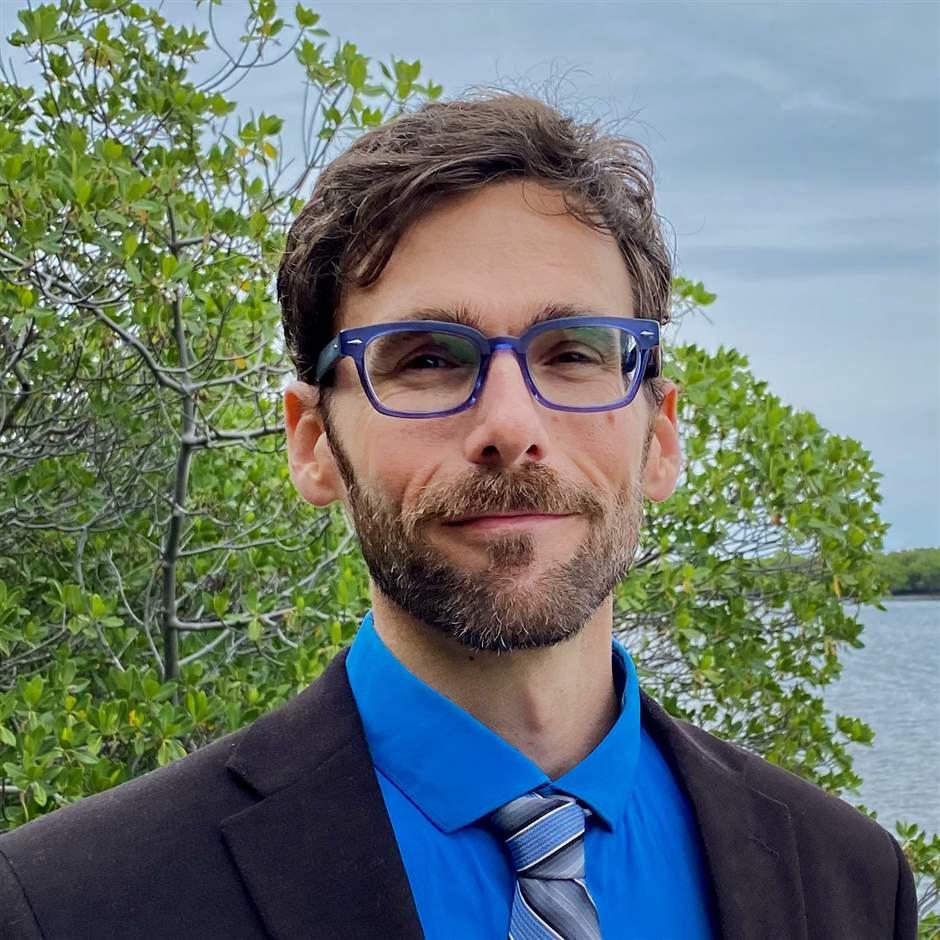Restore America's Estuaries Summit Examined Critical Conservation Issues
Pew experts participated in discussions on resilience, coastal habitats, blue carbon
The Pew Charitable Trusts is committed to protecting and restoring our coastal ecosystems to address the twin challenges of climate change and biodiversity loss through nature-based solutions that sequester carbon and improve communities’ climate resilience. That’s why Pew was a proud sponsor of the Restore America’s Estuaries’ 2022 Coastal and Estuarine Summit in New Orleans.
Lora Clarke Officer
Lora Clarke supports Pew’s efforts to improve the adaptation and resilience of coastal ecosystems and human communities in the Southeast United States. In leading Pew’s work on the South Atlantic Salt Marsh Initiative, Clarke focuses on conserving 1 million acres of the important habitat stretching from North Carolina to east central Florida. Previously, Clarke worked to advance sustainable fishing policies in the U.S. south Atlantic.
Read MoreAlex Clayton Moya Officer
Alex Clayton Moya works to incorporate conservation and restoration of coastal blue carbon and peatland habitats in state and national climate policies for Pew’s U.S. conservation project. She leads efforts to engage primarily with state agencies as they seek to incorporate wetlands into their climate change planning, helping to connect science and research to the policy choices of decision-makers.
Read MoreKristiane Huber Officer
Kristiane Huber works to advance state-level climate resilience planning with Pew’s U.S. conservation project. She engages with state and local leaders to develop and enact policy and resilience planning to address disaster risk from flooding, wildfire, drought, and extreme heat. Huber also manages the State Resilience Planning Group, a forum for collaboration among government officials leading statewide resilience initiatives.
Read More
Cameron Jaggard Officer
Cameron Jaggard works to protect biodiversity, advance habitat connectivity, and improve adaptation and resilience of ecosystems and human communities in the United States’ Southeast coastal states. He previously led Pew’s efforts to protect the Gulf of Mexico’s largest seagrass meadow and advance ecosystem-based fishery management in the Atlantic and Gulf coast states. Before joining Pew, Jaggard focused on protecting and restoring marine species in California and was an environmental consultant responsible for natural resource permitting, wildlife relocations, and habitat monitoring projects in some of Florida’s east coast counties. Jaggard holds a bachelor’s degree in environmental policy from Rollins College. He is based in North Palm Beach, Florida.
Mathew Sanders Senior Officer
Mathew Sanders leads state-level efforts to plan for and build resilience to current and future climate-related disaster impacts for Pew’s U.S. conservation project. In this role, he works directly with state governments and community leaders to advocate for, develop, and implement comprehensive policies and plans for various risks, including floods, wildfires, extreme heat, and droughts.
Read MoreSylvia Troost Project Director
Sylvia Troost works on natural climate solutions, with an emphasis on coastal blue carbon and other wetland habitats, resiliency planning, and federal coastal policy, for Pew’s U.S. conservation project. Her portfolio includes advancing nature-based approaches to climate mitigation. She previously supported Pew’s coastal habitat and oceans conservation work through strategic planning, operations and budgets, and campaign management.
Read MoreRAE Sessions With Pew
Our subject matter experts moderated or participated in the following sessions on an array of topics.
Tuesday, Dec. 6
- Lora Clarke (facilitator), The South Atlantic Saltmarsh Initiative:A Landscape-Scale Partnership
- Sylvia Troost (moderator), Harnessing Coastal Blue Carbon Habitats in the Fight Against Climate Change
- Mathew Sanders (presenter), The Landscape of State Resilience and Adaptation Planning in 2022
- Cameron Jaggard (moderator), Florida’s Nature Coast: Partnering to Protect a Way of Life
Wednesday, Dec. 7
- Kristiane Huber (moderator), In-State Approaches to Planning for Resilient Coastlines and Communities
- Elizabeth Ruther (moderator), From Offshore Wind to Coastal Dredging: A Discussion with Office Hours on Technical and Policy Aspects of Managing Federal Consistency Programs to Advance Healthy and Vibrant Coasts
Thursday, Dec. 8
- Alex Clayton (facilitator), Blue Carbon Collaboratives: Developing and Leveraging Communities of Practice to Advance Blue Carbon in U.S. Coastal States and Regions
Featured resources and research
Blue Carbon
Flood resilience
- States Work to Get Ahead of Frequent and Costly Flooding
- How Pew Helps Build Flood-Resilient States
- These 5 Flood Resilience and Adaptation Challenges Offer Opportunities for States
- Property Buyouts Can Be an Effective Solution for Flood-Prone Communities
Salt Marsh
Seagrass
Coastal Zone Management Act
This video is hosted by YouTube. In order to view it, you must consent to the use of “Marketing Cookies” by updating your preferences in the Cookie Settings link below. View on YouTube
This video is hosted by YouTube. In order to view it, you must consent to the use of “Marketing Cookies” by updating your preferences in the Cookie Settings link below. View on YouTube
This video is hosted by YouTube. In order to view it, you must consent to the use of “Marketing Cookies” by updating your preferences in the Cookie Settings link below. View on YouTube
This video is hosted by YouTube. In order to view it, you must consent to the use of “Marketing Cookies” by updating your preferences in the Cookie Settings link below. View on YouTube








